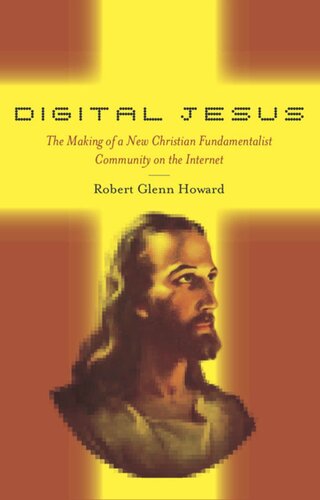

Most ebook files are in PDF format, so you can easily read them using various software such as Foxit Reader or directly on the Google Chrome browser.
Some ebook files are released by publishers in other formats such as .awz, .mobi, .epub, .fb2, etc. You may need to install specific software to read these formats on mobile/PC, such as Calibre.
Please read the tutorial at this link: https://ebookbell.com/faq
We offer FREE conversion to the popular formats you request; however, this may take some time. Therefore, right after payment, please email us, and we will try to provide the service as quickly as possible.
For some exceptional file formats or broken links (if any), please refrain from opening any disputes. Instead, email us first, and we will try to assist within a maximum of 6 hours.
EbookBell Team

5.0
28 reviewsIn the 1990s, Marilyn Agee developed one of the most well-known amateur evangelical websites focused on the “End Times”, The Bible Prophecy Corner. Around the same time, Lambert Dolphin, a retired Stanford physicist, started the website Lambert’s Library to discuss with others online how to experience the divine. While Marilyn and Lambert did not initially correspond directly, they have shared several correspondents in common. Even as early as 1999 it was clear that they were members of the same online network of Christians, a virtual church built around those who embraced a common ideology.
Digital Jesus documents how such like-minded individuals created a large web of religious communication on the Internet, in essence developing a new type of new religious movement—one without a central leader or institution. Based on over a decade of interaction with figures both large and small within this community, Robert Glenn Howard offers the first sustained ethnographic account of the movement as well as a realistic and pragmatic view of how new communication technologies can both empower and disempower the individuals who use them. By tracing the group’s origins back to the email lists and “Usenet” groups of the 1980s up to the online forums of today, Digital Jesus also serves as a succinct history of the development of online group communications.